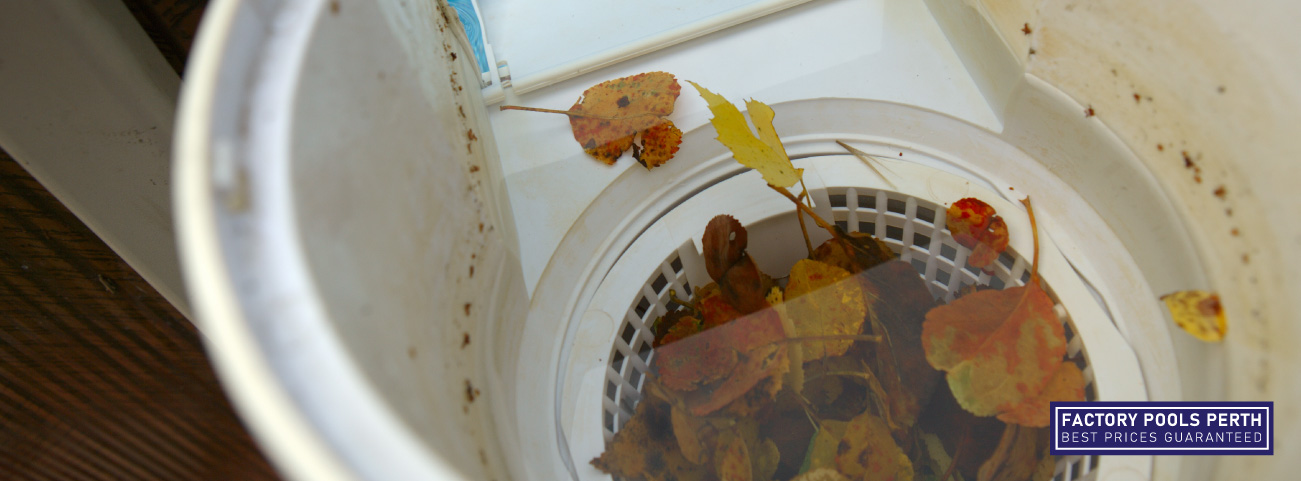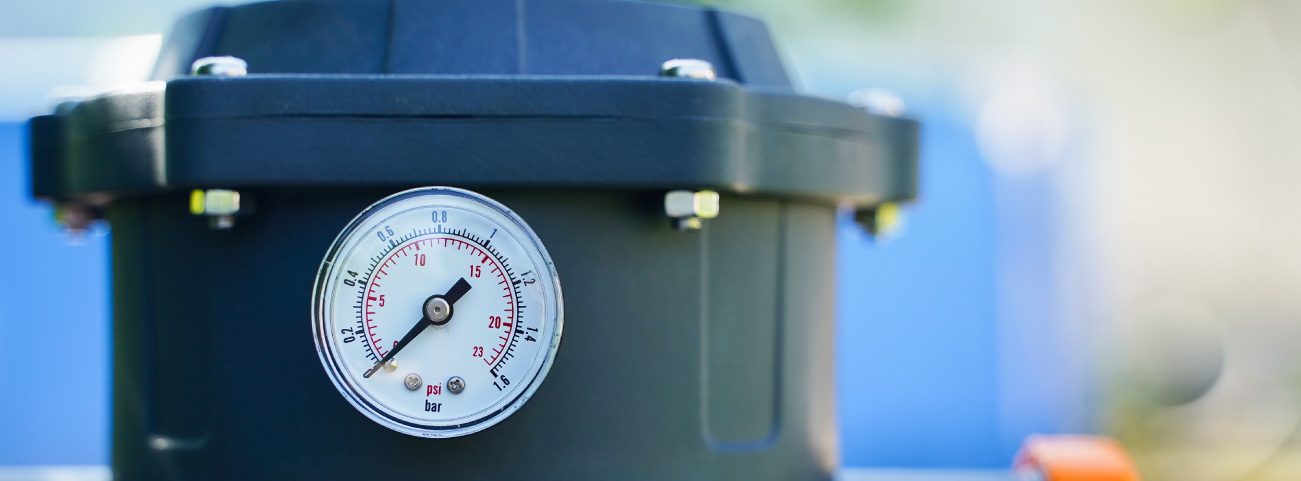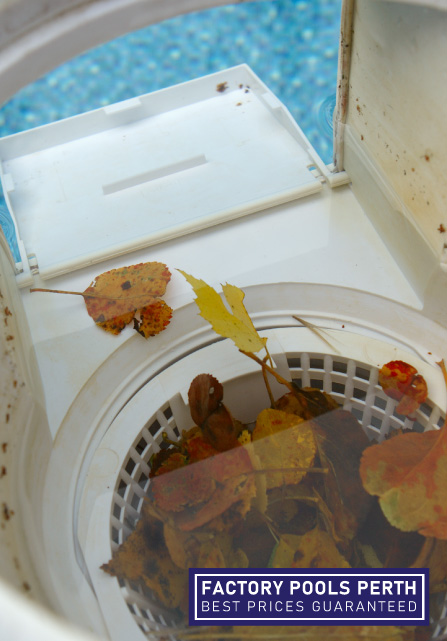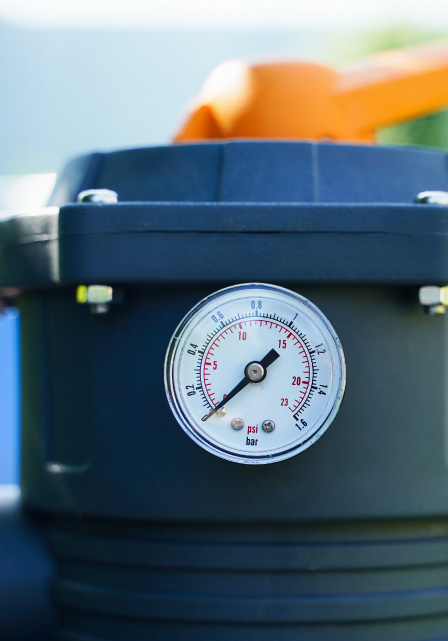Exploring The Variety Of Pool Filters: A Comprehensive Guide
When it comes to maintaining a clean and healthy swimming pool, having an effective pool filter is essential. Pool filters play a crucial role in removing impurities and debris from the water, ensuring that it remains safe and inviting for swimmers. With a wide range of pool filter options available, it can be overwhelming to choose the right one for your specific needs. In this comprehensive guide, we will delve deeper into the different types of pool filters, their features, advantages, and considerations, to help you make an informed decision.

What Are The Different Types Of Pool Filters?
Sand Filters
Sand filters are one of the most commonly used types of pool filters in fibreglass pools. These filters operate using a bed of specially graded sand as the filtering medium. The water from the pool enters the filter tank and passes through the sand bed, where particles and contaminants are trapped. Sand filters are highly effective at removing debris, dirt, and larger particles from the water, keeping it clean and clear. They are suitable for pools of all sizes and are relatively low maintenance. Periodic backwashing is required to remove trapped debris and maintain optimal filtration efficiency. Sand filters are durable and can last for many years with proper care.
Cartridge Filters
Cartridge filters use a pleated fabric cartridge as the filtering medium. These filters offer excellent filtration performance, capable of capturing particles as small as 10-15 microns. The cartridge traps debris and contaminants as the water passes through, ensuring clean and clear pool water. One of the significant advantages of cartridge filters is their ease of maintenance. Cleaning the filter is as simple as removing the cartridge and hosing it off. Cartridge filters do not require backwashing, making them more water-efficient compared to sand filters. They are also ideal for smaller pools or pool owners looking for a low-maintenance filtration system. Cartridge filters are known for their high flow rates and longer filter cycles, which means fewer filter cleanings.

Diatomaceous Earth (DE) Filters
DE filters are highly efficient filters that use a fine powder called diatomaceous earth as the filtering medium. Diatomaceous earth is made from fossilised remains of diatoms, which are microscopic aquatic organisms with silica skeletons. DE filters provide the highest level of filtration, capable of trapping particles as small as 2-5 microns. The filter grids inside a DE filter are coated with a layer of diatomaceous earth, which acts as the filtration medium. As water passes through the grids, the diatomaceous earth captures even the tiniest impurities, resulting in exceptionally clear pool water. DE filters require periodic backwashing and recharging with fresh diatomaceous earth. While they offer exceptional filtration, DE filters can be more expensive and require more maintenance compared to other filter types. However, their effectiveness makes them ideal for pools with high bather loads or areas with heavy debris.
Hybrid Filters
Hybrid filters, also known as combination filters, combine the benefits of cartridge and DE filters. These filters typically have a cartridge element combined with a small amount of diatomaceous earth. This combination enhances the filtration performance, allowing them to capture smaller particles than cartridge filters alone. Hybrid filters offer the convenience of cartridge filters with the enhanced efficiency of DE filters. They require less frequent backwashing and are easier to maintain compared to full DE filters. Hybrid filters are a popular choice for pool owners seeking a balance between filtration effectiveness and ease of maintenance. They are suitable for medium-sized pools and provide efficient filtration with longer filter cycles.

Zeolite Filters
Zeolite filters are a relatively newer addition to the pool filter market. Zeolite is a natural mineral with unique filtering properties. These filters use zeolite as the filtration media instead of sand or diatomaceous earth. Zeolite has a high surface area and a unique molecular structure that effectively traps impurities. Zeolite filters provide excellent filtration performance, capturing particles as small as 3-5 microns. They offer improved water clarity and require less frequent backwashing compared to sand filters. Zeolite filters also have the added benefit of being environmentally friendly, as zeolite is a natural and renewable resource. They are ideal for those looking for a sustainable filtration option without compromising performance.
Saltwater Chlorinator
While not a traditional pool filter, it is worth mentioning saltwater chlorinators in this guide. Saltwater chlorinators use a salt cell or generator to convert salt into chlorine, which helps sanitise the pool water. This system reduces the need for adding chlorine manually and eliminates the typical chlorine odour and irritation associated with traditional chlorination methods. Saltwater chlorinators work in conjunction with pool filters to maintain clean and balanced water. They are a popular choice for pool owners looking for a more convenient and automated way of sanitising their pools. Saltwater chlorinators require less maintenance and provide a more gentle and enjoyable swimming experience.
Conclusion
When choosing a pool filter, several factors should be considered. These include pool size, desired filtration efficiency, maintenance requirements, and budget. It is crucial to properly size the filter according to the pool’s volume to ensure effective filtration. Consulting with a pool professional can help determine the best filter size and type for your specific needs.
In conclusion, selecting the right pool filter is crucial for maintaining clean and healthy pool water. Sand filters, cartridge filters, DE filters, hybrid filters, zeolite filters, and saltwater chlorinators are all viable options, each with its own advantages and considerations. Understanding the features and characteristics of each filter type will help you make an informed decision. Remember to consider your pool size, filtration requirements, maintenance preferences, and budget when choosing a pool filter. By selecting the right filter, you can enjoy crystal-clear water and a refreshing swimming experience throughout the pool season.
Exploring The Variety Of Pool Filters: A Comprehensive Guide
When it comes to maintaining a clean and healthy swimming pool, having an effective pool filter is essential. Pool filters play a crucial role in removing impurities and debris from the water, ensuring that it remains safe and inviting for swimmers. With a wide range of pool filter options available, it can be overwhelming to choose the right one for your specific needs. In this comprehensive guide, we will delve deeper into the different types of pool filters, their features, advantages, and considerations, to help you make an informed decision.

What Are The Different Types Of Pool Filters?
Sand Filters
Sand filters are one of the most commonly used types of pool filters in fibreglass pools. These filters operate using a bed of specially graded sand as the filtering medium. The water from the pool enters the filter tank and passes through the sand bed, where particles and contaminants are trapped. Sand filters are highly effective at removing debris, dirt, and larger particles from the water, keeping it clean and clear. They are suitable for pools of all sizes and are relatively low maintenance. Periodic backwashing is required to remove trapped debris and maintain optimal filtration efficiency. Sand filters are durable and can last for many years with proper care.
Cartridge Filters
Cartridge filters use a pleated fabric cartridge as the filtering medium. These filters offer excellent filtration performance, capable of capturing particles as small as 10-15 microns. The cartridge traps debris and contaminants as the water passes through, ensuring clean and clear pool water. One of the significant advantages of cartridge filters is their ease of maintenance. Cleaning the filter is as simple as removing the cartridge and hosing it off. Cartridge filters do not require backwashing, making them more water-efficient compared to sand filters. They are also ideal for smaller pools or pool owners looking for a low-maintenance filtration system. Cartridge filters are known for their high flow rates and longer filter cycles, which means fewer filter cleanings.

Diatomaceous Earth (DE) Filters
DE filters are highly efficient filters that use a fine powder called diatomaceous earth as the filtering medium. Diatomaceous earth is made from fossilised remains of diatoms, which are microscopic aquatic organisms with silica skeletons. DE filters provide the highest level of filtration, capable of trapping particles as small as 2-5 microns. The filter grids inside a DE filter are coated with a layer of diatomaceous earth, which acts as the filtration medium. As water passes through the grids, the diatomaceous earth captures even the tiniest impurities, resulting in exceptionally clear pool water. DE filters require periodic backwashing and recharging with fresh diatomaceous earth. While they offer exceptional filtration, DE filters can be more expensive and require more maintenance compared to other filter types. However, their effectiveness makes them ideal for pools with high bather loads or areas with heavy debris.
Hybrid Filters
Hybrid filters, also known as combination filters, combine the benefits of cartridge and DE filters. These filters typically have a cartridge element combined with a small amount of diatomaceous earth. This combination enhances the filtration performance, allowing them to capture smaller particles than cartridge filters alone. Hybrid filters offer the convenience of cartridge filters with the enhanced efficiency of DE filters. They require less frequent backwashing and are easier to maintain compared to full DE filters. Hybrid filters are a popular choice for pool owners seeking a balance between filtration effectiveness and ease of maintenance. They are suitable for medium-sized pools and provide efficient filtration with longer filter cycles.

Zeolite Filters
Zeolite filters are a relatively newer addition to the pool filter market. Zeolite is a natural mineral with unique filtering properties. These filters use zeolite as the filtration media instead of sand or diatomaceous earth. Zeolite has a high surface area and a unique molecular structure that effectively traps impurities. Zeolite filters provide excellent filtration performance, capturing particles as small as 3-5 microns. They offer improved water clarity and require less frequent backwashing compared to sand filters. Zeolite filters also have the added benefit of being environmentally friendly, as zeolite is a natural and renewable resource. They are ideal for those looking for a sustainable filtration option without compromising performance.
Saltwater Chlorinator
While not a traditional pool filter, it is worth mentioning saltwater chlorinators in this guide. Saltwater chlorinators use a salt cell or generator to convert salt into chlorine, which helps sanitise the pool water. This system reduces the need for adding chlorine manually and eliminates the typical chlorine odour and irritation associated with traditional chlorination methods. Saltwater chlorinators work in conjunction with pool filters to maintain clean and balanced water. They are a popular choice for pool owners looking for a more convenient and automated way of sanitising their pools. Saltwater chlorinators require less maintenance and provide a more gentle and enjoyable swimming experience.
Conclusion
When choosing a pool filter, several factors should be considered. These include pool size, desired filtration efficiency, maintenance requirements, and budget. It is crucial to properly size the filter according to the pool’s volume to ensure effective filtration. Consulting with a pool professional can help determine the best filter size and type for your specific needs.
In conclusion, selecting the right pool filter is crucial for maintaining clean and healthy pool water. Sand filters, cartridge filters, DE filters, hybrid filters, zeolite filters, and saltwater chlorinators are all viable options, each with its own advantages and considerations. Understanding the features and characteristics of each filter type will help you make an informed decision. Remember to consider your pool size, filtration requirements, maintenance preferences, and budget when choosing a pool filter. By selecting the right filter, you can enjoy crystal-clear water and a refreshing swimming experience throughout the pool season.



